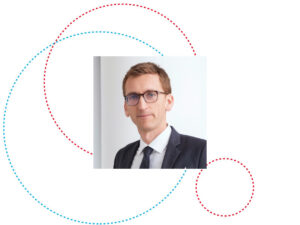Open Sesame! University of Luxembourg Associate Professor Luca Ratti hopes to open the minds of Bachelor and Master students to the possibility of creating a sustainable European social model with the SESaMe (Towards a Sustainable European Social Model) project. Prof. Ratti has been awarded a prestigious Jean Monnet Chair in EU Labour Law to carry out the three-year project, which begins in February 2022.
Prof. Ratti will use this opportunity to expand his teaching portfolio and include a course in EU social security law as well as a course in EU social policy. Among others, students will learn about EU-level coordination between the social systems which govern things such as unemployment and health insurance, retirement and child benefits, as well as how the European institutions coordinate policy on items such as wages, employment protection and collective bargaining through the European Semester process.
Along with the teaching element, SESaMe will also support the dissemination of related research through a lecture series with guest speakers from Europe and North America Universities. A video podcast series will also help disseminating ideas and information to a broad audience. With the project, Prof. Luca Ratti aims to bring together students, academic researchers, legal practitioners, as well as NGOs, social partners and professional organisations such as the Chambre de commerce, Chambre des métiers and the Chambre des salariés.
The SESaMe project adds another dimension to the interdisciplinary virtual research platform, the FDEF House for Sustainable Governance and Markets. The project touches on research areas in sustainable governance structures, sustainable labour relations and sustainable business regulation. “We are living in the decade of sustainability,” says Prof. Ratti, “we need to learn how to build a durable socioeconomic model which will be able to withstand future challenges.”
About the Jean Monnet Chair
The Jean Monnet Chair is a funding instrument within the Erasmus+ programme designed to support and deepen teaching of EU studies and EU matters at institutions of higher education. The Chairholder agrees to provide a minimum of 90 hours of teaching and one additional academic activity per academic year for three years. For more information, visit the website.

Funded by the European Union. Views and opinions expressed are however those of the author(s) only and do not necessarily reflect those of the European Union or the European Education and Culture Executive Agency (EACEA). Neither the European Union nor the granting authority can be held responsible for them
